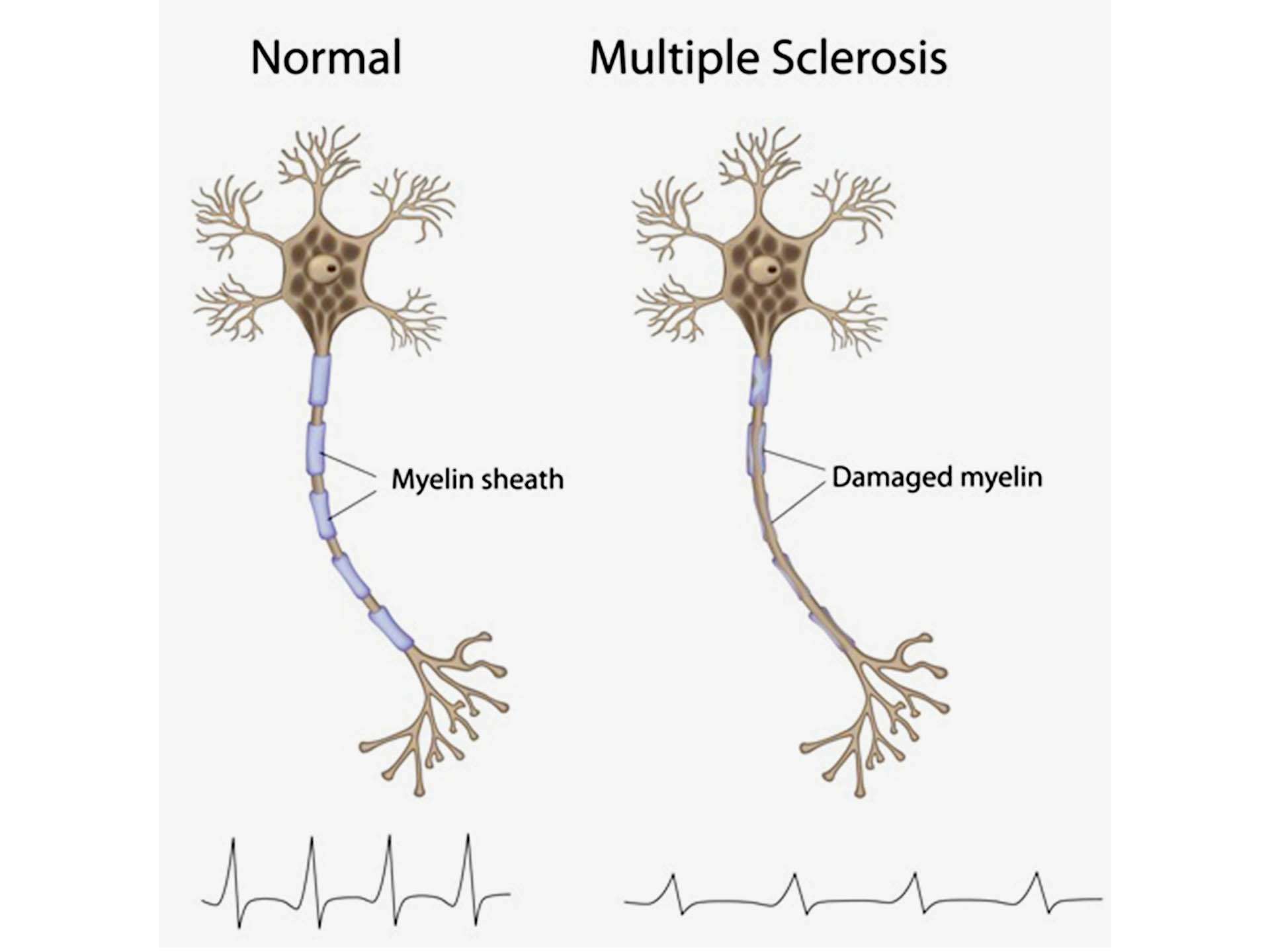Multiple sclerosis is an inflammatory disease that affects the insulating cover of the nerve cells of the brain and spinal cord. This loss of insulation leads to several symptoms including physical, mental, and psychiatric symptoms.
The nature of the symptoms is defined by the area where the lesion has occurred, for example, the nervous system; like tingling and numbness, loss of sensation, muscle weakness and spasms, pronounced reflexes, difficulty balancing, problems with speech and swallowing, visual problems, and a constant feeling of tiredness and debility. These are a few symptoms of multiple sclerosis that can make life a living hell for the sufferer.
Multiple sclerosis occurs in phases. There are attacks of the symptoms that can last for a variable period of time. In between these ‘attacks’ is the remission period where the patient is completely symptom free.
Multiple sclerosis has no definitive cause. It is believed it occurs due to a combination of environmental factors, infections, and genetics.
Studies on multiple sclerosis have shown the incidence of the disease to be high among North European population. This region is exposed to severe cold with little or no exposure to sunlight. This finding throws an interesting light upon vitamin D and its role in multiple sclerosis.
The implication of vitamin D’s role in multiple sclerosis was suggested as early as 1974 by Goldberg. His assumptions were based on the geographical variations of the incidence of multiple sclerosis with people in regions with less sunlight being more prone to developing this disease.
Vitamin D that was until now considered vital for strong and healthy bones, was found valuable in reducing the levels of blood pressure and also increasing the hemoglobin levels. Now this wonder vitamin is being investigated for its role in multiple sclerosis.
Recent research studies state that vitamin D may play a major role in multiple sclerosis. It helps in slowing down the pace of the disease and makes the symptoms less severe. Though no one knows what the connection between multiple sclerosis and vitamin D is, they believe the benefits of vitamin D are mainly because it acts upon the immune system.
Now that researchers have reached a consensus that vitamin D plays a definitive role in the multiple sclerosis disease picture, further studies are on to find out how vitamin D should be incorporated in the treatment protocol for multiple sclerosis. Studies have found that people with low levels of vitamin D had shorter remission periods and developed new lesions rapidly and in general had a bad prognosis.
Also, the studies point out that patients presenting with early signs of multiple sclerosis should be evaluated for vitamin D levels and supplementation should be started early so as to help control the disease better.
The earlier findings of a link between low levels of sunshine and high risk for multiple sclerosis combined with the new findings definitely make vitamin D a ray of hope for sufferers of multiple sclerosis.
Vitamin D has an important role in the development of multiple sclerosis. Lower levels of vitamin D play the role of a trigger in a population that is genetically predisposed to multiple sclerosis.




































